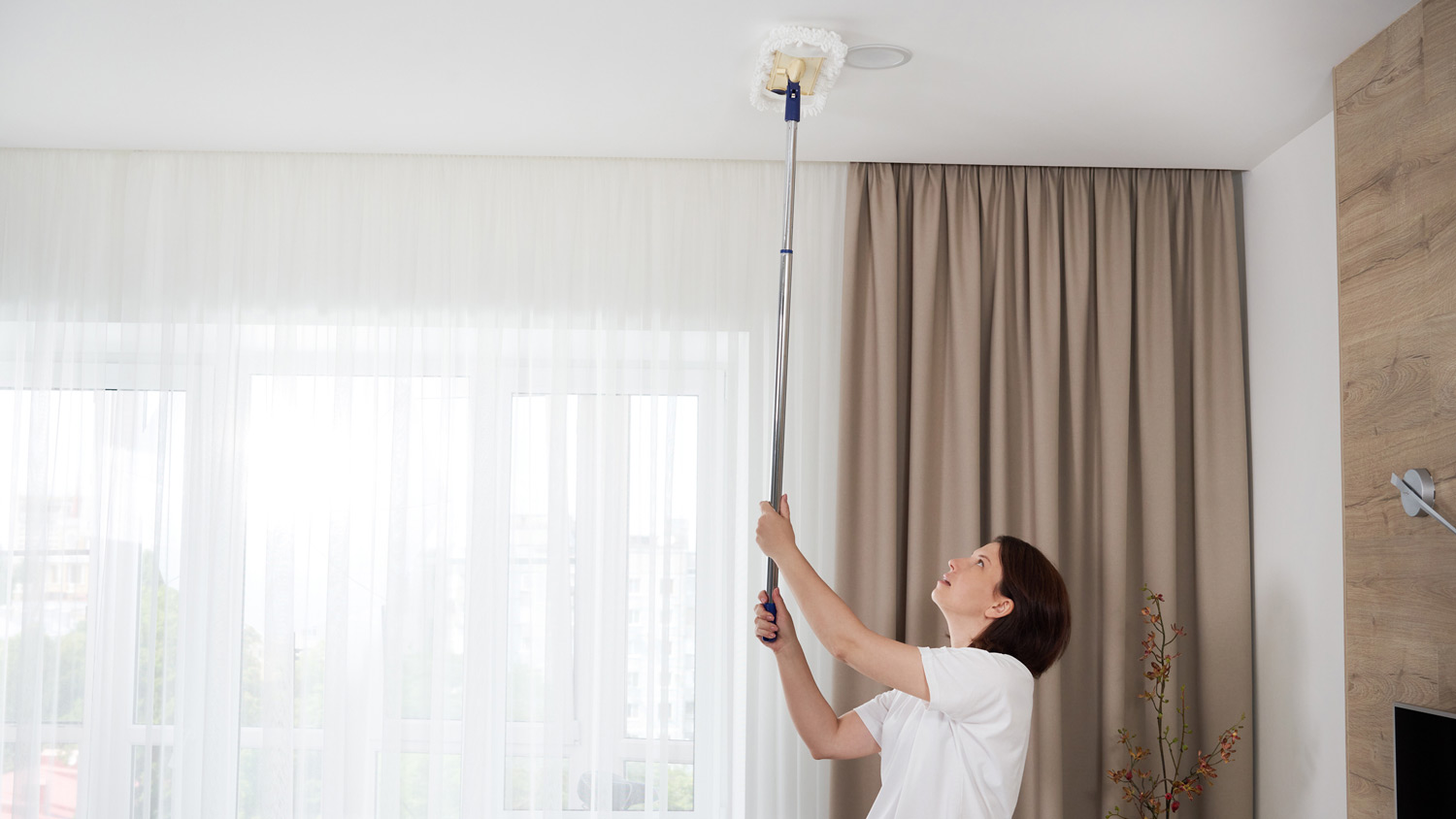
Get matched with top gas log pros in Smith, NV
Enter your zip and get matched with up to 5 pros
Need a pro for your gas log service project in Smith, NV?
Verified Reviews for Gas Log Service pros in Smith, NV
*The Angi rating for Gas Log Service companies in Smith, NV is a rating based on verified reviews from our community of homeowners who have used these pros to meet their Gas Log Service needs.
*The HomeAdvisor rating for Gas Log Service companies in Smith, NV is a rating based on verified reviews from our community of homeowners who have used these pros to meet their Gas Log Service needs.
Last update on January 18, 2026
Find Gas log pros in Smith

AppliancePartsPros.com
AppliancePartsPros.com
Since 1999, we've helped millions of do-it-yourselfers save money and fix their broken appliances quickly by providing quality appliance parts and free repair advice. We are only an online appliance parts retailer that offers a 365 day warranty and fast shipping. We also offer technical advice and diagnosis totally free 6 days a week. If you are interested in repairing your own appliance, please call us at 1-877-477-7278 or click live chat on our web site. We will help diagnose the problem and provide you with all the necessary information for the repair free of charge. It's better with the Pros!™ Avoid costly service calls - visit us at http://www.appliancepartspros.com
"Beware of shipping issues with this company. Ordered an ice maker installation kit on 10/10/25. Shipping was due no later than 10/20 according to company and FedEx tracking. FedEx tracking showed the package at their facility for 8 days without moving beginning on 10/15. Called FedEx 3 times. Each time they said they cannot find package and I have to contact shipper. Shipper has to make a claim, they will not mark it as lost. Called Appliance Parts Pros twice. Each time they say FedEx has to mark package lost before they will do anything. They also state they have to wait 14 days from them before doing anything because of their contract with FedEx. I don't care about their contract, I want what was ordered and paid for. Just going in circles with them and FedEX. If they shipped after 14 days it would be 22 days from that point, 32 days from the date of order if they shipped it that day. There was a deadline for installing this part before tenants arrive. They did not care, would not m"
Ron R on October 2025
Since 1999, we've helped millions of do-it-yourselfers save money and fix their broken appliances quickly by providing quality appliance parts and free repair advice. We are only an online appliance parts retailer that offers a 365 day warranty and fast shipping. We also offer technical advice and diagnosis totally free 6 days a week. If you are interested in repairing your own appliance, please call us at 1-877-477-7278 or click live chat on our web site. We will help diagnose the problem and provide you with all the necessary information for the repair free of charge. It's better with the Pros!™ Avoid costly service calls - visit us at http://www.appliancepartspros.com
"Beware of shipping issues with this company. Ordered an ice maker installation kit on 10/10/25. Shipping was due no later than 10/20 according to company and FedEx tracking. FedEx tracking showed the package at their facility for 8 days without moving beginning on 10/15. Called FedEx 3 times. Each time they said they cannot find package and I have to contact shipper. Shipper has to make a claim, they will not mark it as lost. Called Appliance Parts Pros twice. Each time they say FedEx has to mark package lost before they will do anything. They also state they have to wait 14 days from them before doing anything because of their contract with FedEx. I don't care about their contract, I want what was ordered and paid for. Just going in circles with them and FedEX. If they shipped after 14 days it would be 22 days from that point, 32 days from the date of order if they shipped it that day. There was a deadline for installing this part before tenants arrive. They did not care, would not m"
Ron R on October 2025

Solid Surface Creations-DCI
Solid Surface Creations-DCI
Solid Surface Creations provides design consulting and installation of solid surface products for your new kitchen and bath or your remodel projects. We also offer granite, marble, quartz (engineered stone) and tile products. We are highly competitive in our pricing structure and can match most box store prices. We offer superior craftsmanship, excellent customer service and many years of experience. In 2011, 2013, 2014, 2015 & 2017. Solid Surface Creations received the super service award from Angie's List for in the category of Countertops, Marble & Granite. Maintenance services provided: .Scratch removal for solid surface products .Counter top resurfacing .Crack Repair .Sink replacement .Sealing for granite products Located on the Wasatch Front. Service areas include Utah, Wyoming and Nevada .Licensed and insured .Residential and commercial
"Zero problems and outstanding workmanship and material quality. Dean and Justin (son) are artisans working with Quartz and tile. Justin's idea on the backsplash tile layout was wonderful. Their pricing is in-line with several estimates I got from a local carpet, floor, and tile store in Roy Utah. I didn't go with them because their estimate did not include a sink, plumber, or backsplash and when that got included, the price was equivalent. The difference being I didn't know who would do the work. I met Dean and decided on the spot that he would do the work. He is a good and honest guy. You won't go wrong with him."
John C on May 2018
Solid Surface Creations provides design consulting and installation of solid surface products for your new kitchen and bath or your remodel projects. We also offer granite, marble, quartz (engineered stone) and tile products. We are highly competitive in our pricing structure and can match most box store prices. We offer superior craftsmanship, excellent customer service and many years of experience. In 2011, 2013, 2014, 2015 & 2017. Solid Surface Creations received the super service award from Angie's List for in the category of Countertops, Marble & Granite. Maintenance services provided: .Scratch removal for solid surface products .Counter top resurfacing .Crack Repair .Sink replacement .Sealing for granite products Located on the Wasatch Front. Service areas include Utah, Wyoming and Nevada .Licensed and insured .Residential and commercial
"Zero problems and outstanding workmanship and material quality. Dean and Justin (son) are artisans working with Quartz and tile. Justin's idea on the backsplash tile layout was wonderful. Their pricing is in-line with several estimates I got from a local carpet, floor, and tile store in Roy Utah. I didn't go with them because their estimate did not include a sink, plumber, or backsplash and when that got included, the price was equivalent. The difference being I didn't know who would do the work. I met Dean and decided on the spot that he would do the work. He is a good and honest guy. You won't go wrong with him."
John C on May 2018
Renslow Heating & Air Conditioning Inc
Renslow Heating & Air Conditioning Inc
Renslow Heating & Air Conditioning was established in 1994 to provide the highest quality home air comfort systems. In addition to the quality of our systems, we pride ourselves on honesty and integrity. As a family operated business, we aim to provide our community with the highest standards and affordability. Additional address - PO Box 2464, Fernley, NV 89408. Additional contact name - Brook A Renslow.
Renslow Heating & Air Conditioning was established in 1994 to provide the highest quality home air comfort systems. In addition to the quality of our systems, we pride ourselves on honesty and integrity. As a family operated business, we aim to provide our community with the highest standards and affordability. Additional address - PO Box 2464, Fernley, NV 89408. Additional contact name - Brook A Renslow.

Emco Heating & Air
Emco Heating & Air
EMCO Heating & Air is here for all your residential and commercial heating and air conditioning repair needs. As a full-service heating and air contractor serving St. George, Cedar City and the surrounding areas in Southern Utah, our team is highly specialized and can do anything from simple heating and air conditioning repairs to full HVAC designs and installs. Let our friendly HVAC technicians find the perfect heating and cooling solutions for you.
"They're amazing. Sean goes above and beyond"
jack f on February 2019
EMCO Heating & Air is here for all your residential and commercial heating and air conditioning repair needs. As a full-service heating and air contractor serving St. George, Cedar City and the surrounding areas in Southern Utah, our team is highly specialized and can do anything from simple heating and air conditioning repairs to full HVAC designs and installs. Let our friendly HVAC technicians find the perfect heating and cooling solutions for you.
"They're amazing. Sean goes above and beyond"
jack f on February 2019
New River Masonry
New River Masonry
Residential or commercial masonry and hardscape construction.
Residential or commercial masonry and hardscape construction.

Mountain Area Rentals
Mountain Area Rentals
Setting the scene for your mountain memories. With over 150 chairs and variety of tables, linens, catering supplies, corn hole, custom signs. Delivery of items to your event.
Setting the scene for your mountain memories. With over 150 chairs and variety of tables, linens, catering supplies, corn hole, custom signs. Delivery of items to your event.
See It N 3D Design & Technical Illustrations
See It N 3D Design & Technical Illustrations
The end product will be your Blue Prints, Floor Plans, Notes or drawings (non-technical nor artistic required) designed and converted digitally into 3D (Isometric) full color digital images. (animation available). The purpose and value of my service is convey ideas and purpose of my Clients (Architects, Designers, Artists, Contractors, Home Owners etc.) into images from 8.5 to 11" to Large format such as Poster Board or Bill Board size for advertisement or demonstration, Video 3D animation also available. SEEIT N 3D before you build it SAVE $ and TIME. My illustrations are the last step before the project becomes a reality. I have saved my clients thousands of dollars by allowing a Virtual Reality Preview of the end product/ project using the proposed materials, colors and textures. Email for a free consultation, include samples for a quote.
The end product will be your Blue Prints, Floor Plans, Notes or drawings (non-technical nor artistic required) designed and converted digitally into 3D (Isometric) full color digital images. (animation available). The purpose and value of my service is convey ideas and purpose of my Clients (Architects, Designers, Artists, Contractors, Home Owners etc.) into images from 8.5 to 11" to Large format such as Poster Board or Bill Board size for advertisement or demonstration, Video 3D animation also available. SEEIT N 3D before you build it SAVE $ and TIME. My illustrations are the last step before the project becomes a reality. I have saved my clients thousands of dollars by allowing a Virtual Reality Preview of the end product/ project using the proposed materials, colors and textures. Email for a free consultation, include samples for a quote.

C. Reynolds For Masonry
C. Reynolds For Masonry
We do commercial and residential projects both big and small. We also manufacture stone veneer with the same quality as the "big box" stores but without the "big box" price tag! Give us a call today!
We do commercial and residential projects both big and small. We also manufacture stone veneer with the same quality as the "big box" stores but without the "big box" price tag! Give us a call today!

Metal X Direct
Metal X Direct
Metal X is a Southern California Company comprised of the very best, talented iron workers. We are highly trained and are experts in the use of architectural metals at all levels. We have a total of 20 hard working genuine Metal X employees. Financing, subcontracting, and special promotions are all available. Metal X has a 30 day net billing procedure. Here in Southern California we work with very large development Corps and General Contractors in and around Southern California.. We can do any size job, from custom and ornamental steel to full multi site production and construction work. We are able to take the design approach to any project you have and make your ideas a reality. We are the PREMIER complete Design-Build-Install company. http://metalxonline.com
Metal X is a Southern California Company comprised of the very best, talented iron workers. We are highly trained and are experts in the use of architectural metals at all levels. We have a total of 20 hard working genuine Metal X employees. Financing, subcontracting, and special promotions are all available. Metal X has a 30 day net billing procedure. Here in Southern California we work with very large development Corps and General Contractors in and around Southern California.. We can do any size job, from custom and ornamental steel to full multi site production and construction work. We are able to take the design approach to any project you have and make your ideas a reality. We are the PREMIER complete Design-Build-Install company. http://metalxonline.com
Improved Home Repair & Remodel
Improved Home Repair & Remodel
We thrive on honest hard working employees seeing how they are most likely completing jobs inside or outside customers home. We except check or cash but no credit yet. I have 4 part time employees and 2 full time employees. We are not contracted with other companies but I know several people that work in multiple areas for great referals.
We thrive on honest hard working employees seeing how they are most likely completing jobs inside or outside customers home. We except check or cash but no credit yet. I have 4 part time employees and 2 full time employees. We are not contracted with other companies but I know several people that work in multiple areas for great referals.
The homeowners guide to home care is here
From average costs to expert advice, get all the answers you need to get your job done.
 •
•Discover the average acoustic ceiling cleaning cost, what affects pricing, and how to save. Get expert tips to budget for your acoustic ceiling cleaning project.

Call in the professionals when your delicate drapes need a deep clean. Let's take a look at drapery cleaning costs and which factors can sway the price tag.

Mattress cleaning cost depends on the number of mattresses being cleaned and the size of each. Use this guide to better understand mattress cleaning prices.

Learn how to remove mold from under silicone caulk with our expert guide. These safe, effective methods will keep your home clean and mold-free.

Sometimes, your cat might have an accident on your new rug or living room sofa. Find out how to get rid of cat pee smell from anywhere around the house.

Professional cleaning companies offer move-out and move-in services that can cut stress, reduce allergens, and save you time, as well as your security deposit.
- Wellington, NV Gas log pros
- Gardnerville, NV Gas log pros
- Minden, NV Gas log pros
- Genoa, NV Gas log pros
- Carson City, NV Gas log pros
- Stateline, NV Gas log pros
- Dayton, NV Gas log pros
- Mound House, NV Gas log pros
- Zephyr Cove, NV Gas log pros
- South Lake Tahoe, CA Gas log pros
- Stagecoach, NV Gas log pros
- Silver Springs, NV Gas log pros
- Virginia City, NV Gas log pros
- Washoe Valley, NV Gas log pros
- Incline Village, NV Gas log pros
- Vc Highlands, NV Gas log pros
- Tahoma, CA Gas log pros
- Kings Beach, CA Gas log pros
- Carnelian Bay, CA Gas log pros
- Olympic Valley, CA Gas log pros
- Tahoe Vista, CA Gas log pros
- Tahoe City, CA Gas log pros
- Spanish Springs, NV Gas log pros
- Exterior Painting in Smith
- Garage Doors in Smith
- Excavating in Smith
- Cleaning in Smith
- Painting in Smith
- Tree Service in Smith
- Plumbing in Smith
- Mailbox Repair in Smith
- Home Builders in Smith
- Kitchen And Bath Remodeling in Smith
- Fencing in Smith
- Locksmiths in Smith
- Small Appliance Repair in Smith
- Roofing in Smith
- Flooring in Smith
- Mulch And Topsoil in Smith
- Ceiling Fans in Smith
- Plumbing in Smith
- Roofing in Smith
- Electrical in Smith
- Tree Service in Smith
- Kitchen And Bath Remodeling in Smith
- Landscaping in Smith
- Garage Doors in Smith
- Handyman Service in Smith
- Cleaning in Smith
- Swimming Pools in Smith
- Fencing in Smith
- Lawn And Yard Work in Smith
- Moving in Smith
- 🌱 "Mow a small front yard"
- 🛠 "Fix a leaking pipe under the sink"
- 🏠 "Repair shingles on an asphalt roof"







